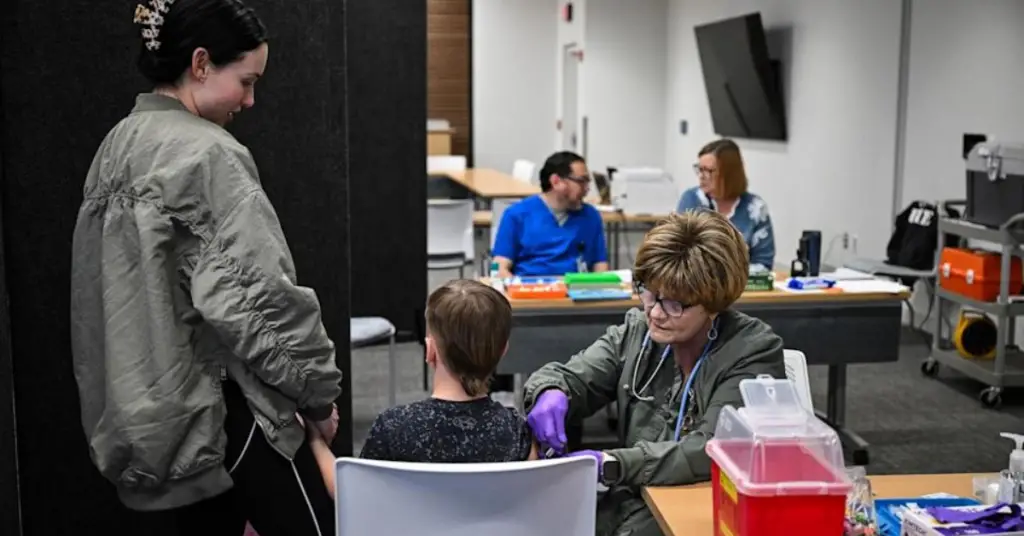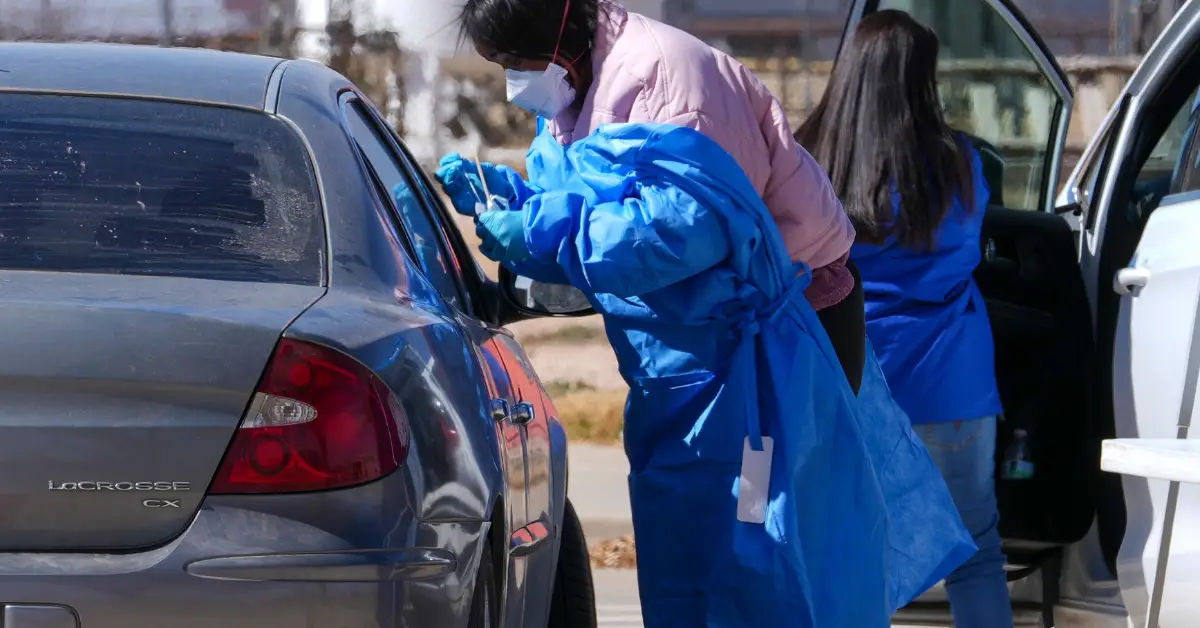The New Jersey Department of Health has launched an investigation into a potential measles exposure after confirmed cases were reported in the state. Health officials are working hard to identify individuals who may have been in contact with the infected people to prevent further spread. The investigation follows the discovery of several measles cases in the area, which has raised concern among residents.
Measles is a highly contagious viral infection that can cause serious health complications, especially in young children, pregnant women, and individuals with weakened immune systems. The disease spreads easily through respiratory droplets when an infected person coughs or sneezes. Symptoms include a high fever, cough, runny nose, red eyes, and a distinctive red rash that often starts on the face and spreads to the rest of the body.
What is Happening in New Jersey?
Health officials in New Jersey are urgently trying to track down anyone who might have been exposed to the measles virus in the recent weeks. They are asking the public to be on the lookout for symptoms of the illness, which typically appear 7-14 days after exposure. If you or someone you know has been exposed, it’s important to seek medical attention right away to reduce the risk of complications.
The New Jersey Department of Health has also been working closely with local healthcare providers to ensure that everyone who has been in close contact with those infected receives the necessary vaccinations or medical care. The state’s health experts have made it clear that getting vaccinated is one of the most effective ways to prevent the spread of measles and protect vulnerable members of the community.
How Measles Spreads and How to Protect Yourself
Measles spreads easily, and anyone who has not been vaccinated or is not immune is at risk. The virus can live for up to two hours in the air after an infected person has coughed or sneezed, making it especially dangerous in crowded spaces such as schools, healthcare settings, and public transportation.
The good news is that measles is preventable with the MMR (measles, mumps, and rubella) vaccine. The Centers for Disease Control and Prevention (CDC) recommends that children receive their first dose of the MMR vaccine at 12-15 months and a second dose between the ages of 4 and 6. Adults who are unsure if they’ve had the vaccine should consult their healthcare provider to get vaccinated or determine their immunity status.
Vaccination is a simple and highly effective way to prevent measles. The MMR vaccine is safe and has been proven to provide long-term protection against the disease.
What Should You Do if You Are Exposed to Measles?
If you believe you may have been exposed to measles, it’s important to take the following steps:
- Contact your healthcare provider: If you suspect you may have been exposed to measles, it’s important to contact your doctor immediately. They can help you determine whether you need a dose of the MMR vaccine or other medical treatment.
- Stay home and avoid public spaces: If you develop symptoms of measles, stay at home and avoid contact with others, especially unvaccinated individuals or those with weakened immune systems.
- Monitor your symptoms: Keep an eye out for any signs of measles, including fever, cough, runny nose, and red eyes. If you notice a rash, it is important to seek medical attention right away.
- Follow public health guidance: Health officials will continue to provide advice and updates as they track the spread of the virus. It’s crucial to follow their recommendations and take the necessary precautions to protect yourself and others.
New Jersey Health Officials’ Response
In response to the investigation, the New Jersey Department of Health has issued guidance for local residents. The department is actively working with schools, daycare centers, and other institutions to identify anyone who might have come into contact with the infected individuals. Local health officials are also working to increase awareness about the importance of vaccination and are encouraging anyone who has not received the MMR vaccine to do so as soon as possible.

The state has seen a small uptick in measles cases over the past few months, which has prompted increased efforts to educate the public about the virus and its prevention. Health officials are urging all residents to check their vaccination status and ensure that they are up-to-date with their immunizations.
Why Is Measles Making a Comeback?
Measles was once considered eradicated in the United States, but in recent years, cases have been rising due to lower vaccination rates. Measles outbreaks have occurred in several states, with many of the cases linked to unvaccinated individuals.
One of the main reasons for the increase in measles cases is the growing number of parents who opt out of vaccinating their children due to misinformation or concerns about vaccine safety. However, studies have shown that vaccines are safe and effective, and the risks of not vaccinating far outweigh the potential dangers.
Public health experts are continuing to emphasize the importance of vaccination in preventing outbreaks and keeping communities safe. Measles is a preventable disease, and getting vaccinated is the best way to protect yourself, your family, and others from this potentially serious illness.
The Bottom Line
The ongoing measles investigation in New Jersey highlights the importance of staying informed and following public health guidelines. The state’s health officials are working tirelessly to prevent further spread of the virus, and they are encouraging everyone to get vaccinated. If you’ve been exposed to measles, seek medical attention right away to prevent complications and ensure that you’re taking the proper precautions to stay healthy.
In the coming weeks, the investigation will continue as health experts track the spread of the disease and identify anyone who may have been affected. In the meantime, residents are encouraged to stay vigilant, check their vaccination status, and take steps to protect themselves and their communities from this dangerous illness.
Disclaimer: This article has been meticulously fact-checked by our team to ensure accuracy and uphold transparency. We strive to deliver trustworthy and dependable content to our readers.




